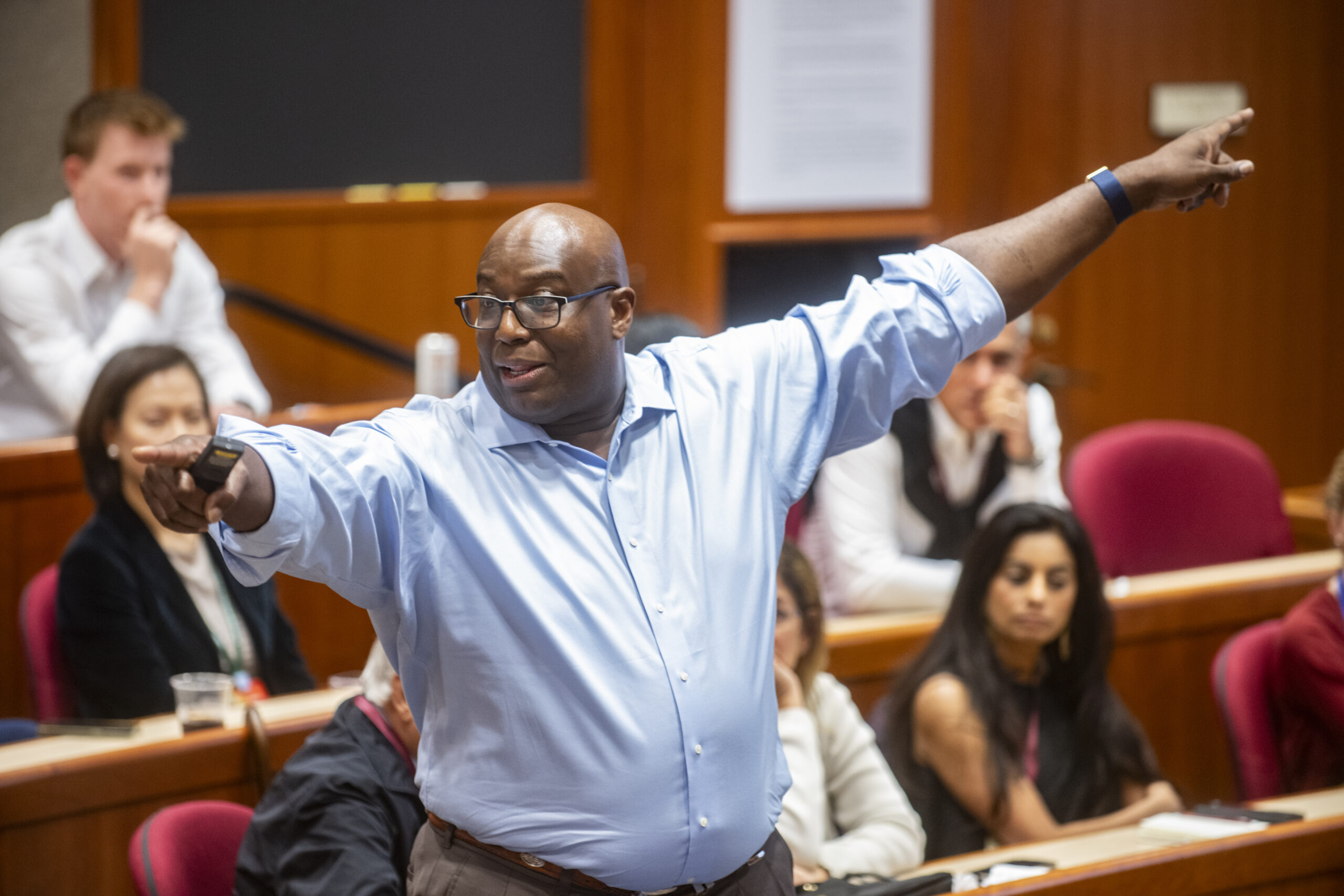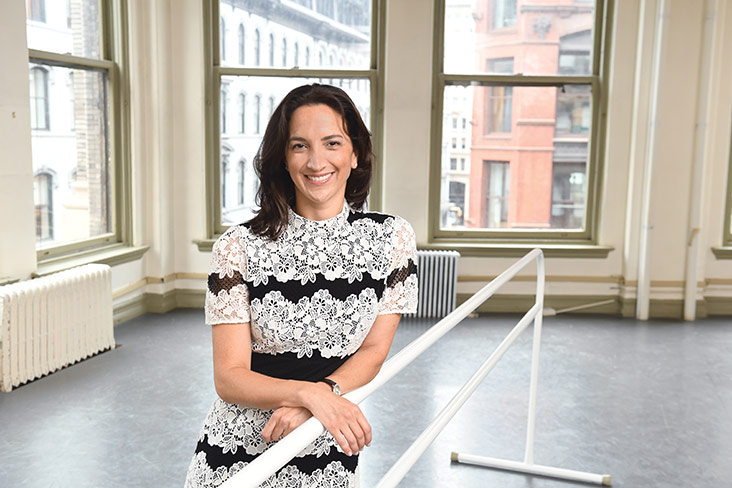

This post is part of our Social Enterprise Initiative 25th anniversary blog series, which highlights some of the faculty, staff, students, and alumni who have been a part of SEI throughout the years. In this post, Kara Barnett (MBA 2007) shares her insights on pursuing a social enterprise career. Kara is the Executive Director of American Ballet Theatre, and previously served as a senior executive at the Lincoln Center for the Performing Arts.
How is the organization in which you’re involved pursuing social change?
American Ballet Theatre is a leader in the performing arts in our commitment to innovation and inclusion. As America’s National Ballet Company, we strive to reflect the diversity and dynamism of our country. For far too long, ballet has been seen as elitist and exclusionary. ABT celebrates uniqueness and individuality. We have dancers from 17 countries and 25 states collaborating daily in our studios and on our stages, and we continue to promote diversity in ballet through our Plié Scholars program. Our company was founded by a woman in 1940, and she commissioned new works by female choreographers in our very first season and beyond. To elevate women creative leaders, we have committed to commissioning and presenting at least three new works by female choreographers each year, as part of the ABT Women’s Movement. In 2019, we are premiering at least 6 new works by extraordinary women. And the pipeline is chock full of talent. I can’t wait to see the new pieces that emerge.
What motivated you to pursue a career path in the social sector?
I wanted to produce the live performing arts at scale. In order to connect our most talented artists with the broadest possible audience, I couldn’t just produce one show at a time. I worked in commercial entertainment (producing live Broadway and off Broadway theater) before HBS. I was drawn to Lincoln Center because its annual audiences were counted in millions and not thousands. The artists and ensembles presented were global, dynamic, and diverse. The stories told on Lincoln Center’s stages were told through the languages of dance, opera, jazz, film, chamber music, symphonic music, and theater. And, Lincoln Center was about to invest $1 billion in transforming its physical campus. The business challenges to support this ecosystem were immense, and the opportunities were hiding in plain sight. The leader of the institution at that time was Reynold Levy, a former HBS professor who understood that business-minded thinkers and problem solvers were essential for a 50-year-old institution to thrive for the next 50 years and beyond. I had never articulated a desire to work for a nonprofit institution, but for an entrepreneurial MBA who loved the performing arts, what could be a more exhilarating opportunity? I applied for and accepted a Social Enterprise summer internship at Lincoln Center. And then I joined Lincoln Center full-time through the HBS Leadership Fellows Program.
What advice would you give to other alumni or students interested in pursuing a career in the social sector?
Don’t be afraid of fundraising. I can’t tell you how many MBAs I interview who tell me they will do anything except for development work. Give me a marketing job, a finance project, or a strategy project, but please don’t make me raise money to support your mission. Philanthropy at its best is a form of essential, meaningful, and impactful investment. The same MBAs who do not want to serve in a development role at a nonprofit are eager to raise funds for startups or private equity funds. If you want to be a change agent and a leader in the world of social enterprise, embrace the challenge of fundraising. You will meet fascinating people along the way, as your donors are individuals who have enjoyed great success in their professional careers. And you will supplement the earned revenue portion of your organization’s business model with essential R&D funds for continued innovation and growth.
How would you describe the social impact you seek to have in the world?
I want to bring communities together to celebrate human possibility. To allow artists to invent and audiences to discover. To seed optimism.